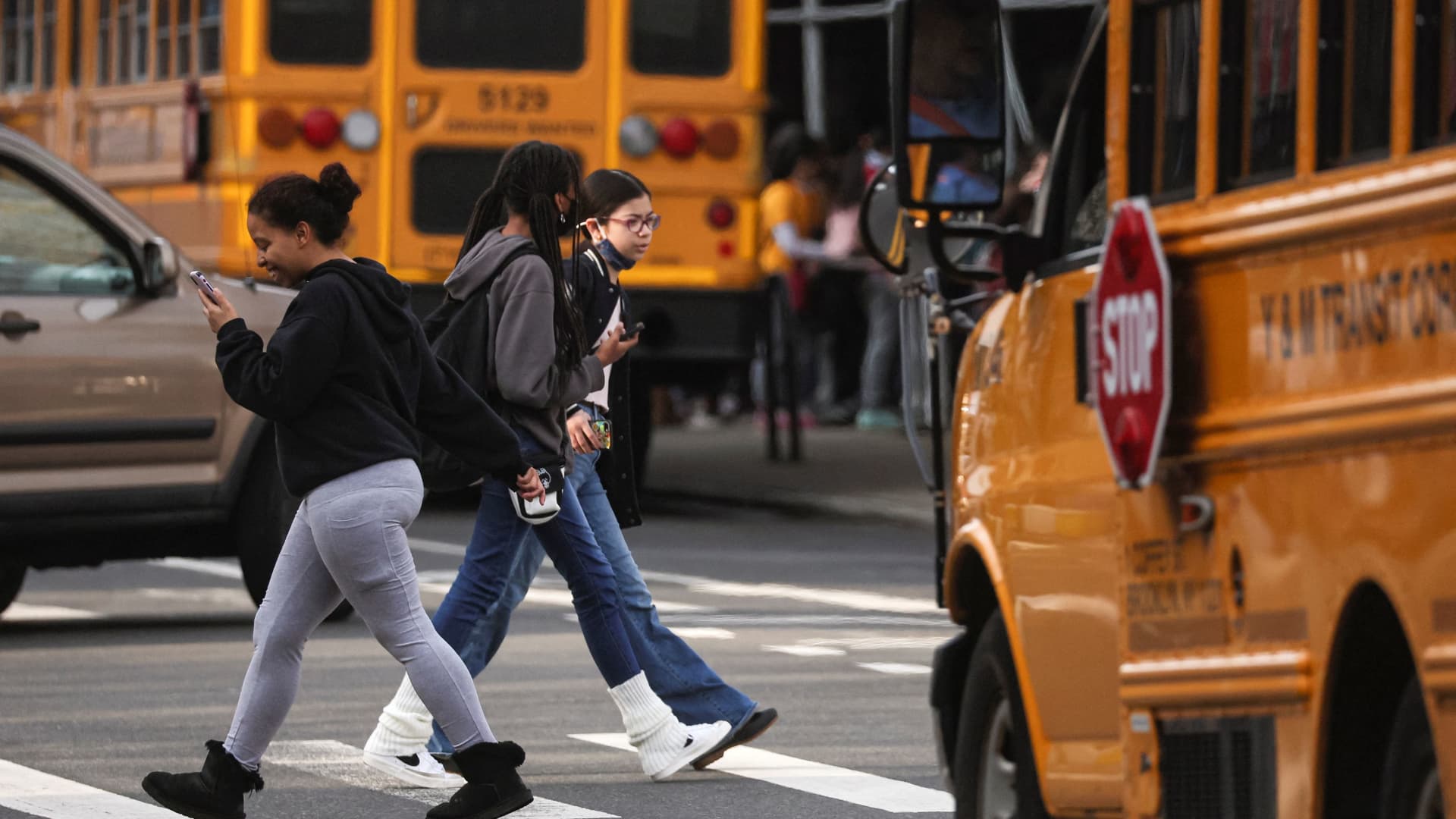New York City could bring back mask mandates and proof of vaccination status to go to restaurants, bars and other venues if Covid hospitalizations rise to a concerning level, according to the city’s top health official.
The city increased its Covid alert level from low to medium earlier this week as infections surpassed a rate of 200 per 100,000 people, driven by the more contagious omicron BA.2 subvariant. For now, health officials are asking residents to exercise increased caution by voluntarily masking indoors and getting tested before and after gatherings.
However, Health Commissioner Ashwin Vasan said New York might reinstate mandatory masking and vaccine checks if the city raises its Covid alert level to high.
“It’s clear that if we moved into a high risk and high alert environment, we’d be seriously considering bringing those mandates back,” Vasan told CNBC on Tuesday.
New York City’s alert system is based on the new Covid community levels designed by the Centers for Disease Control and Prevention that trigger safety protocols based on hospitalization rates and the level of infection on a per capita basis. The city would go into high alert if hospital admissions rise to 10 patients per 100,000 people or if inpatient beds reach 10% occupancy as a seven-day average.
Hospital admissions and bed occupancy are rising; about seven out of 100,000 people were hospitalized with Covid in New York City as of April 31 and about 3% of hospital beds were occupied as of that date.
“We would need to see those levels rise to concerning benchmarks in order for us to move into a higher risk category,” Vasan said. “I think the choices we make now are going to be determinative.”
Mayor Eric Adams ended mandatory vaccine checks at restaurants and other indoor venues in early March as Covid infections plummeted from the height of the omicron wave. Adams also lifted the mask mandate for students at public schools, kindergarten through 12th grade. Children under age 5 are still required to wear masks at school, though the mandate has been the subject of a legal battle. Toddlers and preschoolers are the only age group left in the U.S. that isn’t yet eligible for vaccination.
Infections and hospitalizations in the city are still down more than 90% from the peak of the omicron wave in early January. Vasan said the city is transitioning from the emergency phase of the pandemic into an endemic phase where the virus is not as disruptive to society. However, the city needs to see a prolonged period of low Covid transmission before it can truly declare the pandemic over, he said.
“Between the end of the omicron wave and the beginning of this current wave, we had maybe a month of relatively low transmission,” Vasan said. “What I’d like to see is a prolonged period of low transmission.”
Masks are still required on subways, buses and rail in New York City despite a federal court ruling last month that overturned the CDC’s public transit mask mandate. Although New York state controls the city’s public transportation, Vasan said the city will back the mandate until there’s low-to-no Covid transmission.
“Spending extended amounts of time underground with no ventilation, on a bus with limited ventilation, or in an airplane — those constitutes high risk endeavors for a highly transmissible airborne virus,” Vasan said.
When the city might enter a sustained period of low transmission is unclear. Many epidemiologists are expecting a surge of infections in the fall as colder weather spurs people to spend more time indoors. New York City has a high wall of immunity against Covid with nearly 80% of the population fully vaccinated, Vasan said, but that protection will wane over time and a more immune-evasive variant could always emerge.
“We don’t know what the fall will bring,” the health commissioner said, though he’s not expecting an omicron level surge. “I would be very surprised if we’re seeing anything like omicron ever again,” he said.
However, the city does need to be prepared for the possibility of a future surge, Vasan said. He called on Congress to pass additional Covid funding, saying the city is dependent on federal support for additional vaccines and expanded access to antiviral treatments such as Pfizer’s Paxlovid.
“Now is not the time to start rolling that back,” Vasan said. “The pandemic is certainly not over.”
